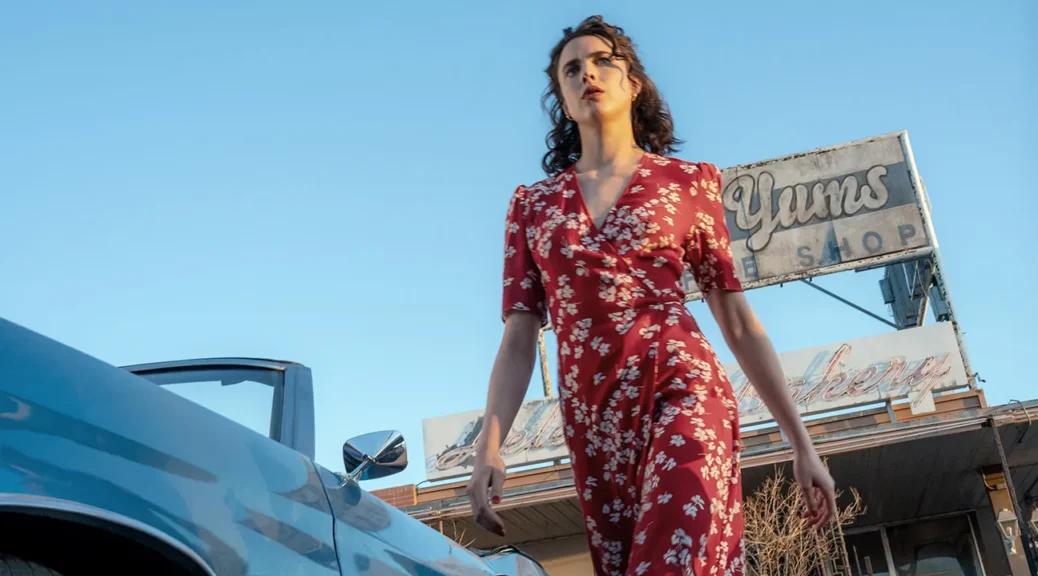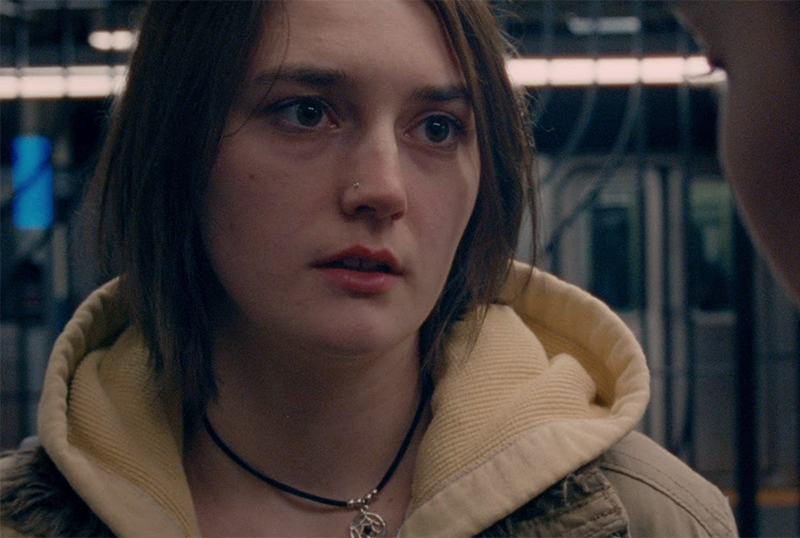Honey Don’t!
by Hope Madden
An entertaining if slight thriller of the old school, hard-boiled detective sort, Honey Don’t! is director Ethan Coen’s follow up to 2024’s Drive-Away Dolls. The second in a lesbian B-movie trilogy, the film sees Margaret Qualley as Honey O’Donahue, a modern day (if landline and analogue) private detective in sun drenched Bakersfield, CA.
Sometime before opening credits roll, Honey got a call from one Mia Novotny (Kara Peterson), the corpse in the overturned car down a dusty canyon road. So obviously, Honey’s not actually working that case. Still, Mia had called saying she was in danger, and business is kind of slow, so what could it hurt if Honey digs in a little bit?
What she finds is an incredibly corrupt minister (Chris Evans), a missing niece (Talia Ryder), a sexy cop (Aubre Plaza), a sexier French woman on a Vespa (Lera Abova), more bodies and more leads. But no real case to solve.
Writing again with Tricia Cooke, Coen has fun recasting a lot of the romantic, tough guy mythology of the private dick and Qualley carries herself and that mythology well. And while each supporting turn is, on its own, convincing and solid, few of the characters feel like they exist in the same film.
At turns punch drunk, zany, dark, gritty, absurd, and lighthearted, Honey Don’t! causes tone change whiplash.
The cinematic sleight of hand required of any whodunnit worth its salt works on the level that it’s a surprise, but again it delivers a tonal shift that brings the film to a screeching halt.
Suddenly the slapstick comedy, delivered with panache and color and elevating the pace of much of the movie, feels not just out of place but ill conceived. The fact that the more comedic the film the more violent the imagery also feels wildly at odds with the seriousness of the final act.
Qualley has no trouble click-clacking her heels no matter the scene or tone, and both Evans and Charlie Day, as a cop with a crush on Honey, are perfect in a breezy if violent comedy about oblivious men in a world where they are unnecessary. And certain scenes feel like the polished gem of any Coen Brothers film. But Honey Don’t! can’t string enough of these together to create anything lasting.



